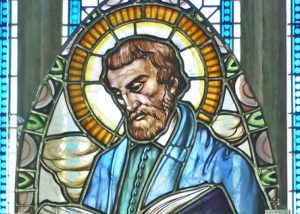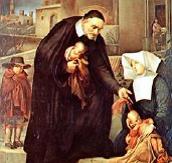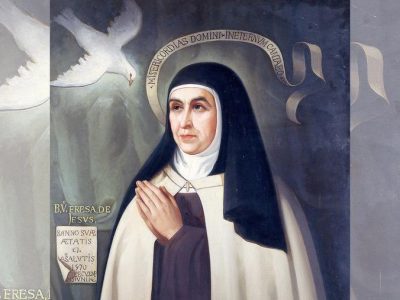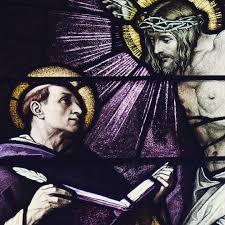
Saint Peter Canisius was a Jesuit priest at the height of the many Protestant reformations in 16th century Europe. He is known as a prolific Catholic theologian, preacher, teacher and evangelizer.
Canisius was born in 1521 in the city of Nijmegen, now in the Netherlands, son of the city’s burgermeister (mayor). At age 15, he studied at the University of Cologne, earning a master’s degree in 1540. Following his stewardship desire to serve God in the Church in Germany, he became the first Dutchman to join the newly formed Society of Jesus in 1543.
Canisius became one of the most influential Catholics of his time. Through his teaching, preaching and writing, he led an historic renewal of the Catholic faith in southern Germany and Austria. Canisius wrote a number of books, preached retreats, founded the first German-speaking Jesuit colleges, and cared for the sick, reputedly traveling more than twenty thousand miles on foot or horseback. Because of these frequent travels, tedious and dangerous at the time, he became known as the Second Apostle of Germany after Saint Boniface. Canisius declined an appointment to become Archbishop of Vienna in order to continue his evangelizing ministry.
Renowned as a popular preacher, Canisius packed churches and was said to have been so eloquent and convincing that he attracted hundreds of Protestants back to the Catholic faith.
Canisius produced a well-organized and easily accessible German language catechism, followed by two abbreviated versions: one for middle school students and one for young children.
Canisius was influential with Emperor Ferdinand I, and participated in the Council of Trent. Devoted to the Virgin Mary, he is credited with adding to the Hail Mary the sentence Holy Mary, Mother of God, pray for us sinners. When asked if he felt overworked, the energetic Canisius replied with a stewardship quote: “If you have too much to do, with God’s help you will find time to do it all.”
Canisius died on December 21, 1597 at age 76. Canonized and declared a Doctor of the Church in 1925, he is the patron saint of Germany. His feast day is December 21.



